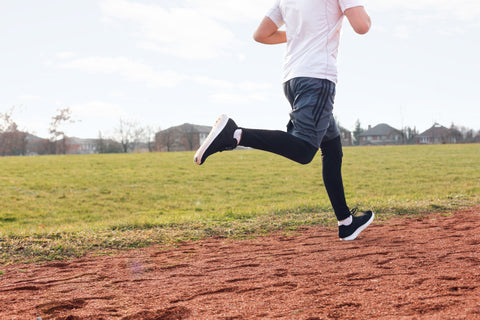
Running in Summer: A Comprehensive Guide
Share
The arrival of summer doesn't mean that you have to hang up your running shoes. While the sweltering heat may seem like a deterrent, with the right preparation, precautions, and mindset, running in summer can be a unique and rewarding experience. This article will guide you through the essentials of running during the summer season, offering tips on how to prepare, what to wear, and how to stay safe while enjoying your run under the summer sun.
1. Pre-Run Preparations
Before you set out for a run, it's essential to prepare your body for the heat. Here are some tips to help you gear up:
Hydrate: In high temperatures, your body sweats more to cool down, which means you're losing fluids at a higher rate than usual. Stay well-hydrated before, during, and after your run to compensate for this increased fluid loss. Drinking water is essential, but consider supplementing with sports drinks containing electrolytes if you're planning for longer runs.
Acclimatize: If you're not used to running in heat, give your body time to adapt. Start with shorter, slower runs, and gradually increase your distance and pace as your body becomes more accustomed to the heat.
Eat Right: Your diet can play a significant role in how well your body handles the heat. Eating light meals, packed with fruits and vegetables, can help your body stay cool.
2. Dress Appropriately
Choosing the right running gear can make a massive difference in comfort during summer runs.
Lightweight and Light-Colored Clothing: Opt for lightweight, breathable fabrics like tech tees that are designed to wick away sweat. Light-colored clothing can also help to reflect the sun's rays rather than absorbing them.
Protective Accessories: A hat or visor can help shield your face from the sun, and sunglasses can protect your eyes from harmful UV rays. Additionally, wearing a broad-spectrum sunscreen of at least SPF 30 can protect your exposed skin.
3. Time Your Runs
During summer, timing is crucial. The sun is at its peak between 10 a.m. and 4 p.m., so it's best to avoid running during this period if possible. Early morning or late evening runs are usually the coolest options.
4. Stay Safe
While running in summer can be enjoyable, it's vital to keep safety in mind.
Listen to Your Body: In hot conditions, your body has to work harder. If you start feeling dizzy, nauseous, or excessively fatigued, stop running, find a cool place, and hydrate.
Be Aware of Heat-Related Illnesses: Heatstroke and heat exhaustion are serious conditions that can occur when your body overheats. Know the symptoms and ensure you know what to do if they arise.
5. Modify Your Expectations
Lastly, it's essential to understand that running in the heat is challenging. You may not be able to run as fast or as far as you can in cooler conditions, and that's okay. The most important thing is to listen to your body and not push beyond your limits.
Conclusion
Running in summer, though demanding, can offer unique benefits such as improved cardiovascular efficiency and increased mental toughness. Remember, preparation, hydration, the right gear, and knowing your limits are key to making your summer runs safe and enjoyable. By following these guidelines, you can maintain your fitness levels year-round, regardless of the temperature outside.
